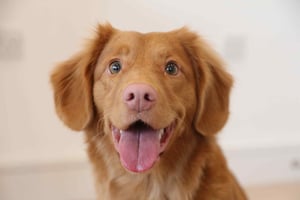Do you ever wonder why your dog seems to eat grass? Do you want to know how to stop your dog from...
Why Is My Dog Not Eating His Food?
Is your dog not eating his food? Are you unsure why this is happening? This article will help you understand the common reasons why your dog is not eating their food and how to address the issue. We will cover topics such as health issues, stress, and diet changes to help you get your pup back to eating their food.
Health Issues
One of the most common reasons why a dog may not be eating their food is due to health issues. If your pup has recently been sick, they may not have an appetite. If they are feeling nauseous, they may not want to eat. If your pup has been having digestive problems, they may not be able to digest their food properly, which may lead to them not wanting to eat. It is important to take your pup to the vet if they are not eating their food and have other symptoms like vomiting, diarrhea, or lethargy.
If your pup has been diagnosed with a health issue like a food allergy, they may not be able to eat their food. A food allergy can cause your pup to have an upset stomach and can make them feel unwell. It is important to consult your vet to determine the best food for your pup if they have a food allergy.
Stress
Stress can also be a common cause for a dog not eating their food. If your pup has recently experienced a stressful event, such as a move or the death of a family member, they may not want to eat. It is important to recognize if your pup is feeling stressed and to provide them with comfort and reassurance.
If your pup has been in a new environment, they may not know where their food is. It is important to make sure that your pup can find their food and that it is in a familiar place. You can also try putting your pup’s food in a different bowl or changing the location of their food to help them find it.
Diet Changes
Sometimes, a diet change can cause a pup to not eat their food. If you have recently changed your pup’s food, they may not like the new food and may not want to eat it. It is important to transition your pup to the new food slowly over a period of time to reduce the chance of them not wanting to eat. You can also try adding a small amount of the old food to the new food to help your pup transition.
It is also important to make sure that your pup is getting enough food. If your pup is not getting enough food, they may not be getting enough nutrients and may not want to eat their food. Make sure to feed your pup the recommended amount of food for their size and age.
Conclusion
If your pup is not eating their food, there are many potential causes. Health issues, stress, and diet changes can all be contributing factors. It is important to consult your vet if your pup is not eating their food and has other symptoms. It is also important to make sure that your pup is getting enough food and that they are transitioning to a new diet slowly.
If you are still unsure why your pup is not eating their food, it is best to consult your vet for more advice. They can help you determine the cause and provide the best treatment for your pup.



